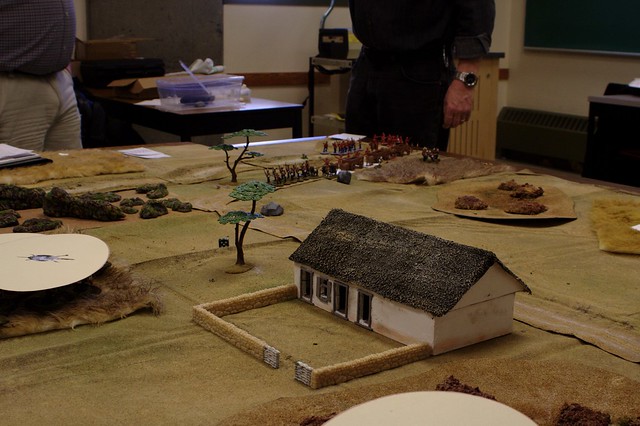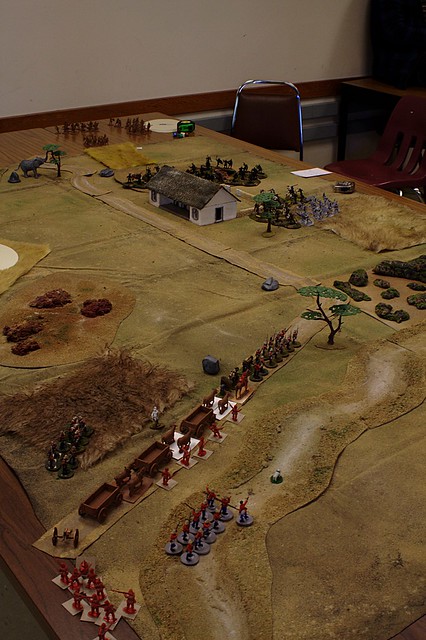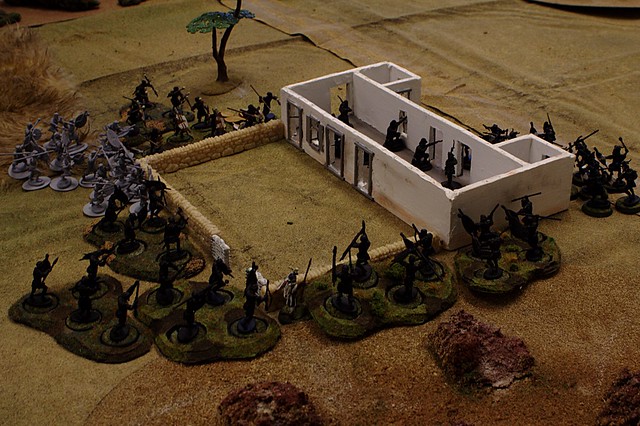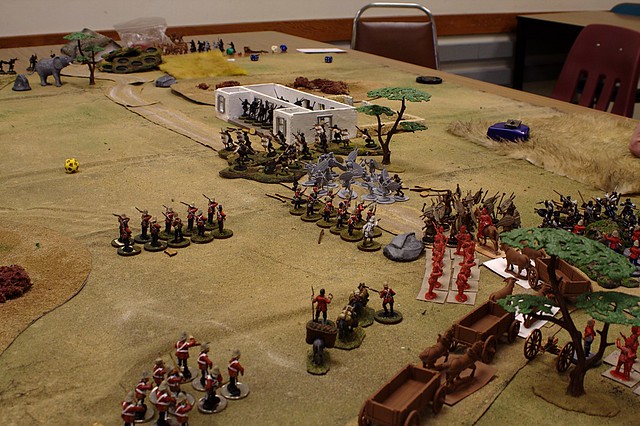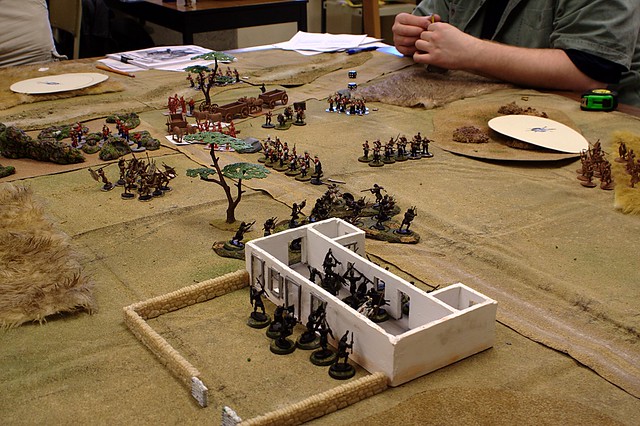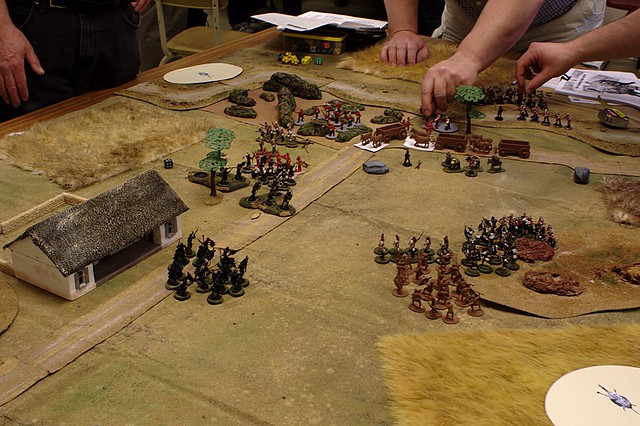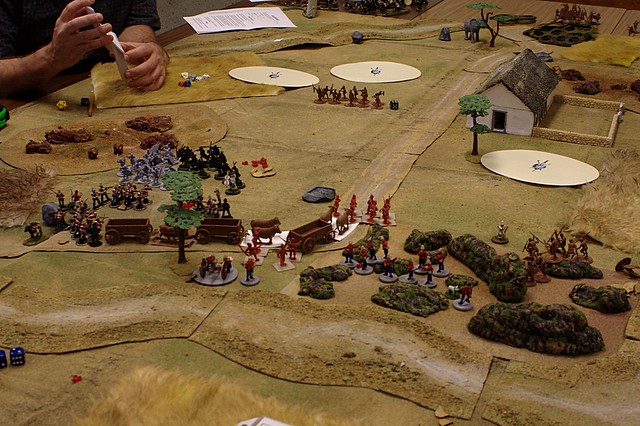And so the day began, much like the day before it, but with the promise of relief. Dust clouds had been seen along the road toward the main force, maybe the good Colonel could see fit to send us some more men. Yesterday’s fight was bloody but at sundown, we still held the hospital, if only just.
-Memoirs of the Zulu War, Col. Reginald Heathe (ret.), commander of the Royal Oak Bay Volunteers 1875-1891
Sunday marked our second Zulu War game, the first to include figures from all five players who have bought in (myself, Malcolm, Dale, Bruce, and Nathan). Also debuting this game was my hospital, built on an imperial-ized version of Matakishi’s detailed plans.
The back story I concocted for this game was that my Royal Oak Bay Volunteers had found themselves under siege yesterday and had narrowly carried the day, but were holed in the hospital and required relief. This explained my single company on the table (my remaining British and Zulu are unbuilt). A large relief column was moving towards the hospital in an attempt to relieve it.
It all began well enough. Zulus appeared at one of six random locations under a blind, usually two blinds at a time. Luck meant that most of the blinds started in one of the two locations nearest the hospital, representing the forces from the day before coming back. The column moved slowly, but ground towards me. As our Zulus are “AI controlled”, the random stance they choose was to stand back and fire their muskets and chuck their spears against me. All was well, the Royal Oak Bay were holding.
At this point, it all went off the rails. The relief column got bogged down in heavy terrain and by the time any numbers of them could have arrived, Zulus were already attacking the front of the wagon train, leaving the Royal Oak Bay all alone. And then the Zulu’s charged. Given the difficulties both of us had in scoring any hits through the windows and doors, I lasted a surprising long time, outnumbered and worse in melee than the Zulu.
The action was hot and close. The Zulus pressing on all sides of the hospital, finally testing their spears against our bayonets. With many doors and not enough men, I was forced to step straight into the breach, holding the door nearest our relief. I parried their spears thrusts with my saber, finally driving them back. I could see the relief column, but it appeared swarmed under with Zulus. As I turned to give encouragement to my men, I saw not a single standing red coat. What I saw instead was a wall of black Zulu warriors.
– Memoirs of the Zulu War, Col. Reginald Heathe (ret.)
With the hospital fallen, the Zulus ground the British back, forcing them to retreat inch by inch. More Zulus appeared in the right flank of the column, but those Zulus discovered the pain of a gatling gun.
By nightfall, the British were tired and bloody. They retreated in poor order, leaving the hospital and this part of veldt to the Zulus for a little while longer.
As with our last game, we used Triumph and Tragedy, albeit heavily modified. Besides the aforementioned AI Zulus, the action is driven by cards which specify a certain command, either for the British or the Zulus. These include the basic T&T Fire, Fire and Move, Double Move, but also Zulu Charge, Zulu Command (which may change their tactics), and Hordes of Zulus (which puts new blinds on the table). In an effort to bring an end to the game, we decided that each player that had Zulus could lose up to four groups before they could bring no new groups on. Still, with over 250 Zulus between the four, we still didn’t end up with all the Zulus on the table at any one time.
All in all, an enjoyable game. Our rules are still in flux, but they appear to producing a good result. Now we just need to win. There are a few pictures that haven’t been seen here, they can be seen in my A hospital unrelieved Flickr group.

